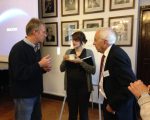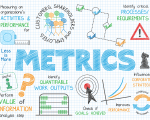Financial networks and the Real economy: Evolution, Interaction and Systemic stability
Jointly organized by COST Action KNOWeSCAPE and Complex Systems Research Centre (CORE), NUI Galway
March 14-16, 2017
Almost a decade since the 2008 financial crash, European economies continue to experience the aftershock with sluggish economic recovery dangerously drifting towards a long-term recession. One of the main reasons that hindered the dominant economic models to predict the crisis lie in the inadequate description of how modern financial system influences the determination of employment, output, and economic growth. This is true even of the new generation policy models such as the ‘Dynamic Stochastic General Equilibrium model’, which remains the workhorse for policy making in most of the central banks around the world. In the context of the current crisis, it is clear that these models, underpinned by the principle of separation between the financial and real economies, do not have a framework to analyse the impact of the former on the latter. It is also clear that the remedial economic policies derived from these descriptive models have not been successful as reflected in the fragile recovery with negative growth and high unemployment in some EU countries.
A key question is to understand how modern financial system, or the monetary economy, interacts with the real economy, and vice versa. Since the crisis, this question has stimulated new research by both social scientists, economists and others from physical and natural sciences. However, developments remain within the boundaries of the respective disciplines; there has been little exchange of ideas, methods and tools across disciplinary boundaries. Now nearly a decade into the crisis, it is timely to initiate active interaction between all these diverse groups and disciplines in order to facilitate cross-fertilization of ideas and bring new collaborations to bear on the issue. The aim of this workshop is to bring together economists and other scientists working on these questions for a dialogue on the conceptual, methodological, and applied issues related to the impact of modern financial networks on the wider economy.
The workshop will host a special session on the diffusion of the financial literacy from a public policy point of view.
Please contact Oleg Yordanov and Giulia Rotundo for more information.
Link to programme will be provided in due time.




